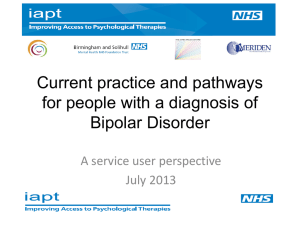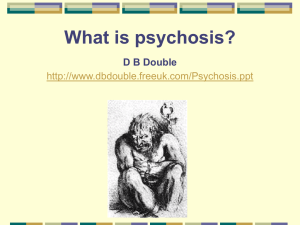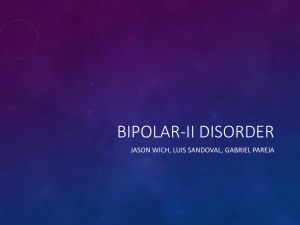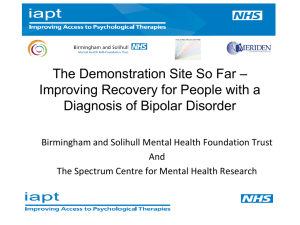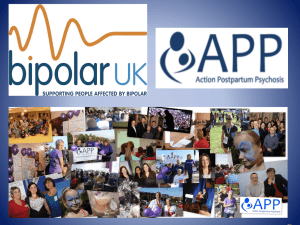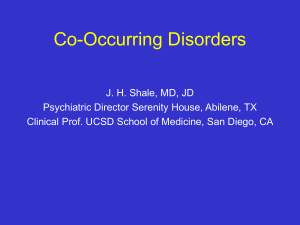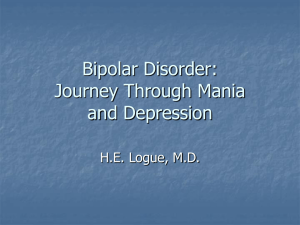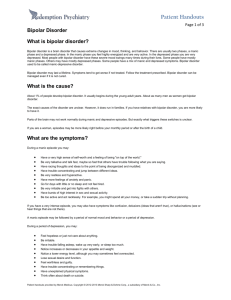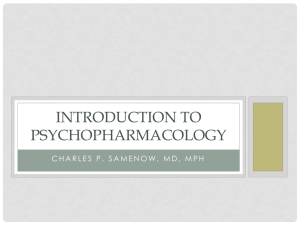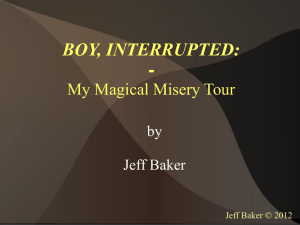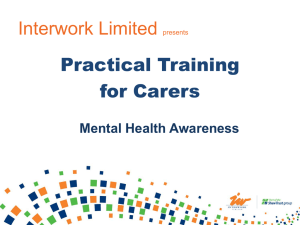Bipolar Disorder: A Biopsychosocial Overview
advertisement
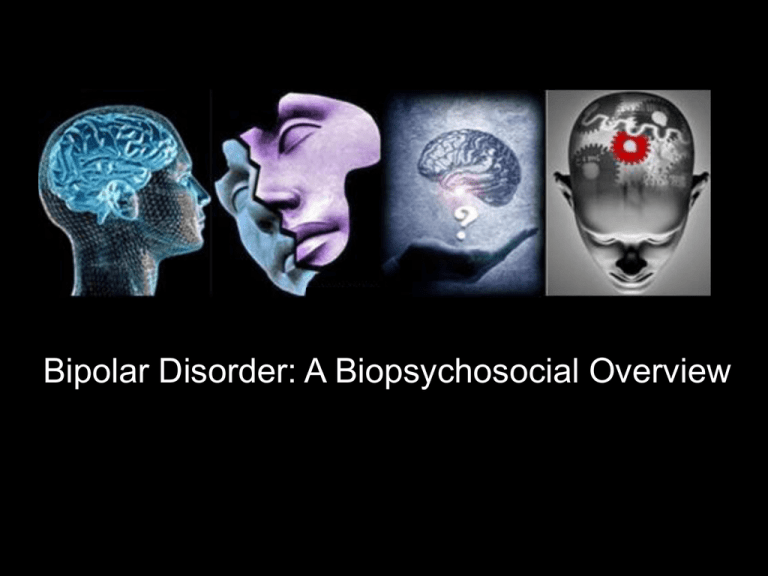
Bipolar Disorder: A Biopsychosocial Overview mdl.psych.northwestern.edu Source: Touched by Fire, Jamison, 1996 Bipolar Disorder: Epidemiology • Elevated suicide, divorce, work impairment, substance use • 6th leading cause of disability worldwide (Murray & Lopez, 1996). • Accounts for nearly half the inpatient mental health care costs in the US (Kent et al., 1995). Roadmap: A series of Questions Four Questions about Bipolar Disorder 1. What is it? 2. What is its stigma? 3. Is there a blood test? 4. What are its treatments? Roadmap: A series of Questions Four Questions about Bipolar Disorder 1. What is it? 2. What is its stigma? 3. Is there a blood test? 4. What are its treatments? Mood disorder involving severe mood swings Depression Mania Severity Cyclothymia Bipolar II Disorder Bipolar I Disorder Erratic depressive and hypomanic symptoms MDE and Hypomanic Episodes Manic Episode No Manic Episode MDE not necessary for diagnosis No MDE ~ 2-4 percent of population has bipolar spectrum diagnosis Misdiagnosis of Bipolar Disorder % of Patients Misdiagnosed 60 60 50 40 26 30 18 17 20 14 11 10 0 Unipolar Depression Anxiety Disorder Schiz Hirschfeld, et al. J Clin Psychiatry 64: 161-174, 2003 Personality Disorder Subst. Abuse SchizoAffective Age-of-Onset of Bipolar Disorder Pediatric Bipolar Disorder - 10-20% onset < 10 yo - Controversial (40-fold increase) - Difficult to differentiate from ADHD Roadmap: A series of Questions Four Questions about Bipolar Disorder 1. What is it? 2. What is its stigma? 3. Is there a blood test? 4. What are its treatments? - Predicts worse course and social isolation - Limit social interactions - Social isolation in caregivers Grief for the Loss of the Healthy Self Roadmap: A series of Questions Four Questions about Bipolar Disorder 1. What is it? 2. What is its stigma? 3. Is there a blood test? 4. What are its treatments? PFC Limbic PFC Limbic - Common to many psychiatric disorders - Biology of positive emotion may yield cues more specific to bipolar ‘Wanting’ Circuit in the Brain Ventral Striatum Bipolar disorder characterized by a hypersensitivity in the wanting circuit Reward-Processing in Bipolar Disorder Reward-Related Brain Activity: MDD < Comparison Comparison MDD Forbes et al., 2009, Am J Psychiatry -Bipolar disorder and unipolar depression characterized by distinct profiles in the wanting or reward circuit -Biomarkers and treatment Roadmap: A series of Questions Four Questions about Bipolar Disorder 1. What is it? 2. What is its stigma? 3. Is there a blood test? 4. What are its treatments? Bipolar disorder may not be curable but it is livable Psychosocial Treatments for Bipolar Disorder Cognitive Behavioral Therapy Family-Focused Therapy IPSRT mdl.psych.northwestern.edu
